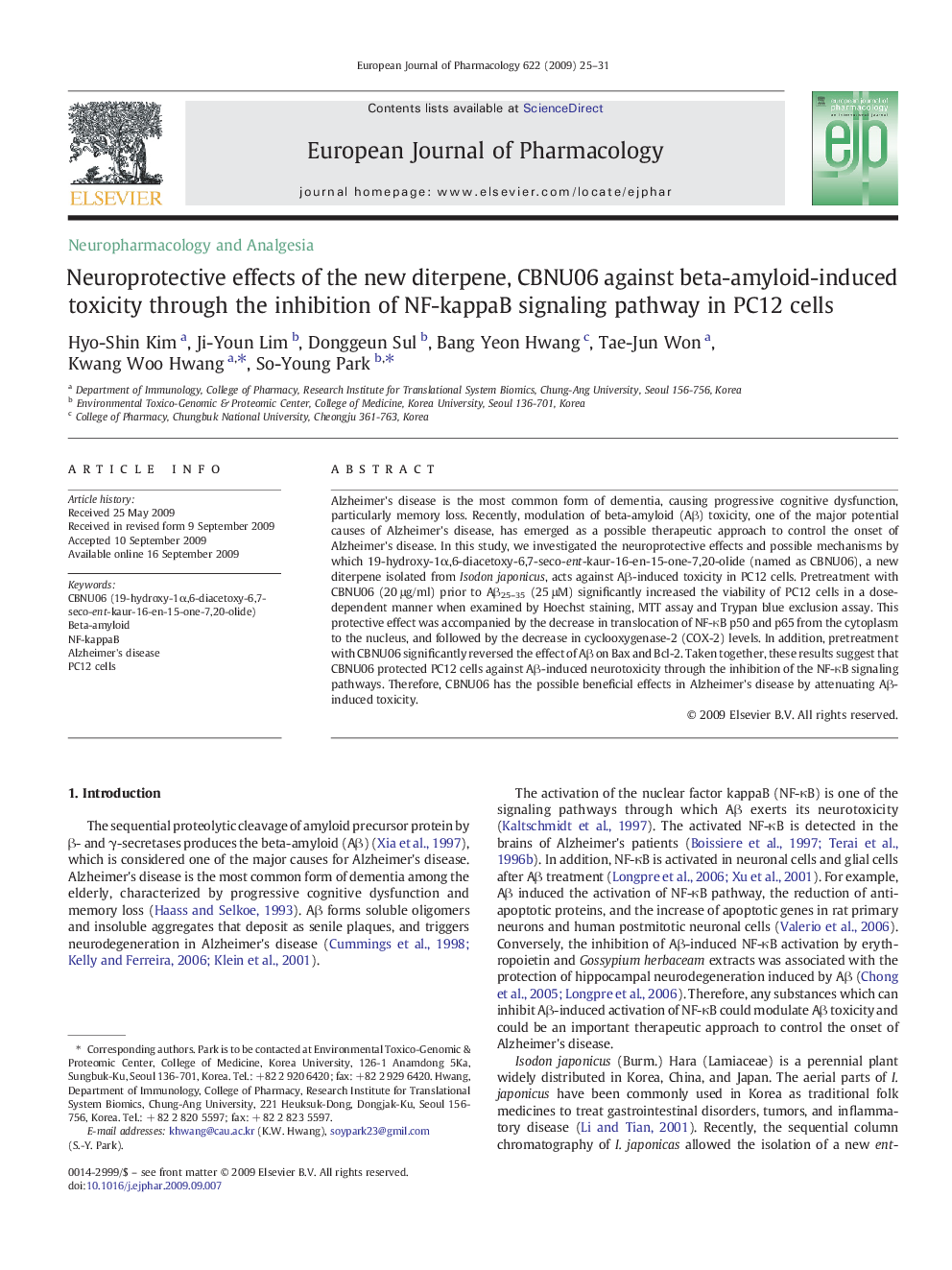| Article ID | Journal | Published Year | Pages | File Type |
|---|---|---|---|---|
| 2534005 | European Journal of Pharmacology | 2009 | 7 Pages |
Alzheimer's disease is the most common form of dementia, causing progressive cognitive dysfunction, particularly memory loss. Recently, modulation of beta-amyloid (Aβ) toxicity, one of the major potential causes of Alzheimer's disease, has emerged as a possible therapeutic approach to control the onset of Alzheimer's disease. In this study, we investigated the neuroprotective effects and possible mechanisms by which 19-hydroxy-1α,6-diacetoxy-6,7-seco-ent-kaur-16-en-15-one-7,20-olide (named as CBNU06), a new diterpene isolated from Isodon japonicus, acts against Aβ-induced toxicity in PC12 cells. Pretreatment with CBNU06 (20 μg/ml) prior to Aβ25–35 (25 μM) significantly increased the viability of PC12 cells in a dose-dependent manner when examined by Hoechst staining, MTT assay and Trypan blue exclusion assay. This protective effect was accompanied by the decrease in translocation of NF-κB p50 and p65 from the cytoplasm to the nucleus, and followed by the decrease in cyclooxygenase-2 (COX-2) levels. In addition, pretreatment with CBNU06 significantly reversed the effect of Aβ on Bax and Bcl-2. Taken together, these results suggest that CBNU06 protected PC12 cells against Aβ-induced neurotoxicity through the inhibition of the NF-κB signaling pathways. Therefore, CBNU06 has the possible beneficial effects in Alzheimer's disease by attenuating Aβ-induced toxicity.
